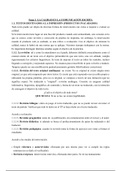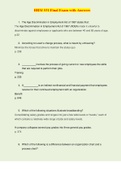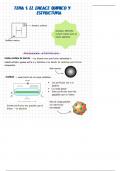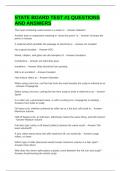Lecture 1
Look further than what you can see - seemingly diverse but truly privileged
Positionality matters (Positionality is relational)
● History
● Experiences
● political differences and preferences
The way you approach this course is influenced by yourself as well
Definition of the politics of difference
"How power and political institutions categorize people into groups and how this generates inequality”
Not all differences are political
- How pigmentation of skin becomes political
- How trivial differences become political
Contrarily, slaughtering different types of animals due to religion becomes political
The politics of difference is dependent on the politics of normal
● powerful to call something normal
○ normal family = man and woman:
○ Laws are made or families like these not for other dynamics. The power of normal.
How should political scientists study differences?
➔ Individual gets to be different in the private sphere
➔ Public sphere ~ differences do not belong
- we should focus on what we share
- does not belong = has to be equal for everyone
Can we distinguish between public and private?
Some can go from private to public and be fine, others can't
● E.g. being a particular size
● In America invoking god in a speech is normal, in NL it is not
1
,Interests - everyone has
- everyone wants money
Identities
- recognition
- do we see each other as the same group?
Carriage with racist caricatures → king cannot use → communicating to people they are not
part of the society (no identity recognition form of politics)
How certain differences become political and some not
● When does normal become problematic?
Surveys
1. Positionality → what our social position is and how that impacts how you think
- A category (women) is not considered, it affects how you talk about something
- Religion changes the conversation and how you think
2. Describing differences in political
- How do political scientists put people in boxes?kpeech and the elevation of others
Lecture 2 readings:
Young
● The deliberative model of communication derives from specific institutional contexts of the
modern West-scientific debate, modern parliaments, and courts → as ruling institutions, these
are elitist and exclusive: male-dominated and in class- and race-differentiated societies they
have been white- and upper class-dominated
● Instead of defining discussion as the open reciprocal recognition of the point of view of
everyone, these institutions style deliberation as agonistic → deliberation is competition
● Restricting practices of democratic discussion to moves in a contest where some win and
others lose privileges those who like contests and know the rules of the game. Speech that is
assertive and confrontational is here more valued than speech that is tentative, exploratory, or
conciliatory. In most actual situations of discussion, this privileges male speaking styles over
female
● The dominant groups, moreover, often fail entirely to notice this devaluation and silencing,
while the less privileged often feel put down or frustrated, either losing confidence in
themselves or becoming angry
● norms of deliberation also privilege speech that is formal and general, and dispassionate
without emotions
2
, ● the entrance of the body into speech-in wide gestures, movements of nervousness or body
expressions of emotion are signs of weakness that cancel out ones assertions or reveal one's
lack of objectivity and control
● in our society these differences of speech privilege correlate with other differences of
social privilege
Author: I conclude from these considerations that this discussion-based theory of
democracy must have a broader idea of the forms and styles of speaking that political
discussion involves than deliberative theorists usually imagine. I prefer to call such a
broadened theory communicative, rather than deliberative, to indicate an equal
privileging of any forms of communicative interaction where people aim to reach
understanding.
Second point of critique:
● Deliberative theorists commonly write about this process of moving from subjective
self-regarding preferences to more objective or general opinions about the solution to
collective problems as a process of discovering or constructing unity among them
● → two ways:
1) Some take unity to be a prior condition of deliberation
● problematic because in contemporary pluralist societies we cannot assume that there
are sufficient shared understandings to appeal to in many situations of conflict and
solving collective problems
● assumption of prior unity obviates the need for the self-transcendence
2) some theorists of discussion-based democracy conceptualize unity as a goal of political
dialogue
● problematic bc it may harbor another mechanism of exclusion: Assuming a discussion
situation in which participants are differentiated by group-based culture and social
position, and where some groups have greater symbolic or material privilege than
others, appeals to a "common good" are likely to perpetuate such privilege
Communicative Democracy
● A theory of communicative democracy that attends to social difference, to the way that power
sometimes enters speech itself, recognizes the cultural specificity of deliberative practices,
and proposes a more inclusive model of communication
● Unlike the interest-based conception of democracy, communicative democracy emphasizes
that peoples ideas about political questions often change when they interact with other
people's ideas and experiences
● Participants in a communicative democratic interchange often begin with differences of
culture, perspective, interest, but the goal of discussion is to locate or create common interests
that all can share
● If polity is to be communicative democracy, it must have 3 conditions:
1) significant interdependence
2) equal respect
3) agreed-on procedures
3
, ● If we are all really looking for what we have in common whether as a prior condition or as a
result then we are not transforming our point of view. We only come to see ourselves
mirrored in others. If we assume, on the other hand, that communicative interaction means
encountering differences of meaning, social position, or need that I do not share and identify
with, then we can better describe how that interaction transforms my preference
● The plural standpoints in the public enable each participant to understand more of what the
society means or what the possible consequences of a policy will be by each situating his or
her own experience and interest in a wider context
→ understanding does not have to mean getting to the same beliefs, but developing an understanding
of perspective that is beyond ones own subjectivity
● can cause transformation in preference by:
1) revealing your own view as perspectival through being confronted by other views
2) knowing about others and their struggles forces you to move away from self-interest
toward social justice
3) everyone gains in social knowledge
● three elements that a broader conception of communicative democracy requires in addition to
critical argument:
1) greeting
● small talk, flattery (no specific content but still necessary to communication)
● also includes smiles, handshakes, hugs, food and drink offers and takings
● helps establish trust and respect
2) rhetoric
● helps to engage audience and make people listen, as opposed to just straight facts
● situatedness and link to desire → links speaker to audience, constructs speaker,
audience and occasion
● humor, worldplay images and figures of speech → get and keep attention
3) storytelling
● narrative fosters understanding by revealing particular experiences of those in
different social situations and evoking empathy by others
● also foster understanding by revealing source of values, culture and meaning which
often cannot be justified through arguments
● third, listeners can learn about how their own position, actions, and values appear to
others from the stories they tell → reveals a total social knowledge from the point of
that social position
Bennet & Livingston: A Brief History of the Disinformation Age
- Trump averaged thirty false/misleading statements per day
- disinformation = intentional falsehood or distortions, often spread as news, to advance
political goals such as discrediting opponents, disrupting policy debates, influencing voters,
inflaming existing social conflicts, or creating a general backdrop of confusion and
informational paralysis
4











